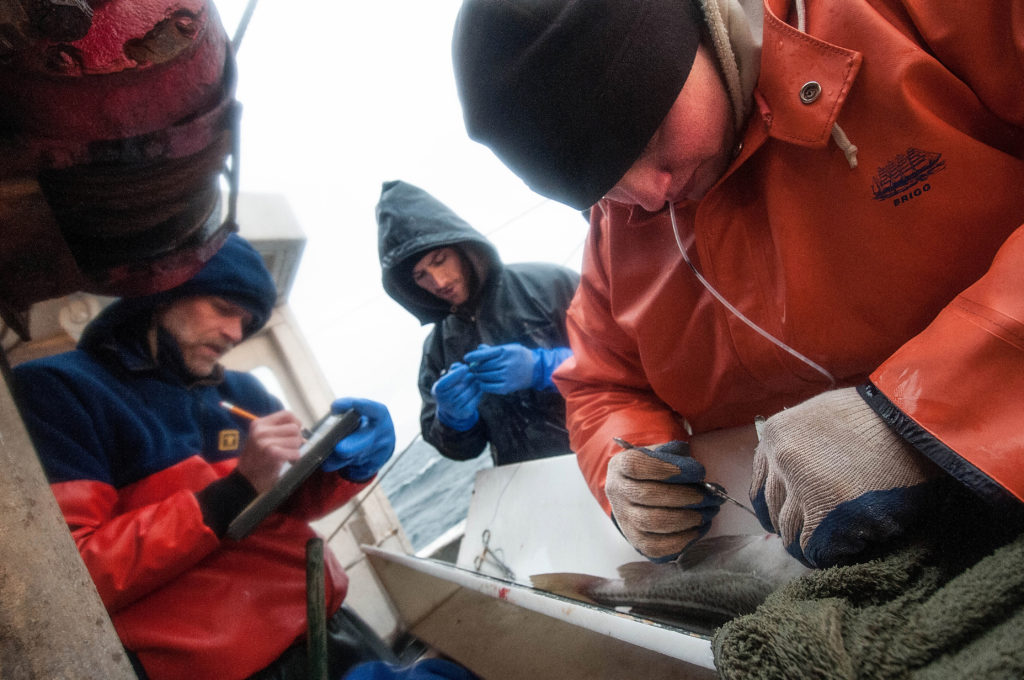As overfishing and climate change continue to threaten our marine resources, fisheries scientists in New England are working to develop best practices to manage iconic and economically valuable species, such as Atlantic Cod.

Fisheries researchers keep track of each cod tagged so that they can provide valuable data about fish movement and use of habitat. Photo by John Clarke Russ for The Nature Conservancy
One area of focus is monitoring the reproductive habits of existing populations, in order to determine critical habitat areas. In support of these efforts, MSC graduate student Micah Dean of the Grabowski Lab, along with colleagues from many partner organizations, monitored a cod spawning ground over multiple years using electronic tags and by recording the “grunts” produced by male cod. Hydrophones used to detect cod, were fixed to the seafloor and mounted on roving autonomous underwater vehicles.
The study was recently published in the ICES Journal of Marine Science. Results illuminated the importance of this area for cod reproduction, and findings were used to create a closed fishing area that will protect this unique and vulnerable spawning ground.
This type of applied research that informs policy requires cross-sector collaboration, and Dean worked with colleagues at multiple organizations including Massachusetts Division of Marine Fisheries, University of Massachusetts – School for Marine Science and Technology, The Nature Conservancy, NOAA Fisheries and the Stellwagen Bank National Marine Sanctuary.

